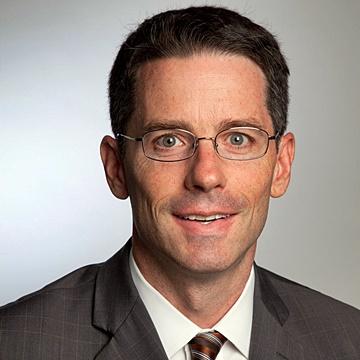“Exactly What I Needed …’

John Marion
Master of Studies in LawNow in his tenth year as executive director of Common Cause Rhode Island – local chapter of the national government reform advocacy organization – John Marion has discovered that RWU Law’s Master of Studies in Law (MSL) program is enhancing his performance in new and often unexpected ways.
“It’s exactly the sort of thing that I needed, given what I do for a living,” he says.
As Common Cause’s lead advocate for government reform agenda – focused on ethics, open government, campaign finance, voting rights, separation of powers and judicial selection – Marion lobbies members of Rhode Island state government for positive change. His successful initiatives include a state constitutional amendment restoring full jurisdiction of the state Ethics Commission, and the requirement of risk-limiting post-election audits.
“My primary role is as a legislative advocate for government reform,” Marion says. “So I work in the law all day, though I’m not a lawyer. RWU Law’s MSL program has been exactly what I’d hoped it would be – it’s enough of a legal education so that I can better understand both the law and the type of thinking that goes into it.”
"The MSL program has helped to inform the debate for me. ... Suffice it to say, there have been a lot of ‘a-ha!’ moments!”
The MSL’s big advantage for Marion is its practicality and flexibility, which allow him to hone in on the areas of law he actually uses on a daily basis.
“J.D. students have to focus a lot on procedure and process, because they are going to practice law,” Marion says. “But I’m not going to practice; I’m here more for the substance.”
Constitutional Law is a good example of that dynamic at work.
“The First Amendment gets thrown around a lot in public debate about policy,” he explains. “But it can often be an uninformed debate. I’ve been in legislative hearings where people will say, ‘This bill raises serious First Amendment concerns!’ – but that’s such a gross, general statement! Taking the time to read the case law has helped to inform the debate for me. I can now dig into follow-ups like, ‘Well, what specific First Amendment concerns does it raise? Can the bill be tailored in a way that deals with those concerns?’ Knowing the background elucidates the meaning. Suffice it to say, there have been a lot of ‘a-ha!’ moments.”
And, practicing lawyer or not, even those procedural courses have shed valuable light on Marion’s work.
“I read a ton of statutes,” he says. “I deal with the Ethics Code and campaign finance and election law every day. Sometimes I have to read case law on those topics. For example, I deal with Citizens United all the time. So when I took Civil Procedure last semester – and it really provided me with a road map through the legal process, which can be opaque to those who haven’t any legal education. All of a sudden, I understood the posture of the parties in a way that I really couldn’t before.”
It’s an advantage that has caught the attention of Marion’s professional colleagues.
“I’ve recommended the MSL program to several friends in state government and to another who works in public policy with a nonprofit, again with no legal background.” he says. “They’re interested. Once people find out I’m in the program, they tend to start asking a lot of questions about it.”
